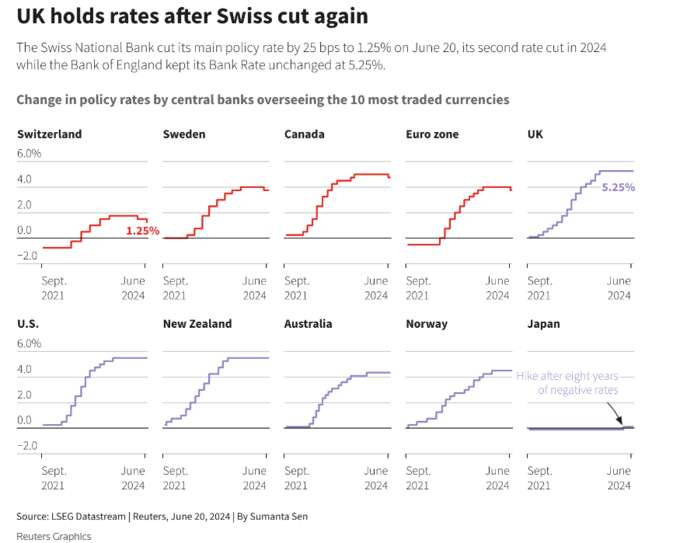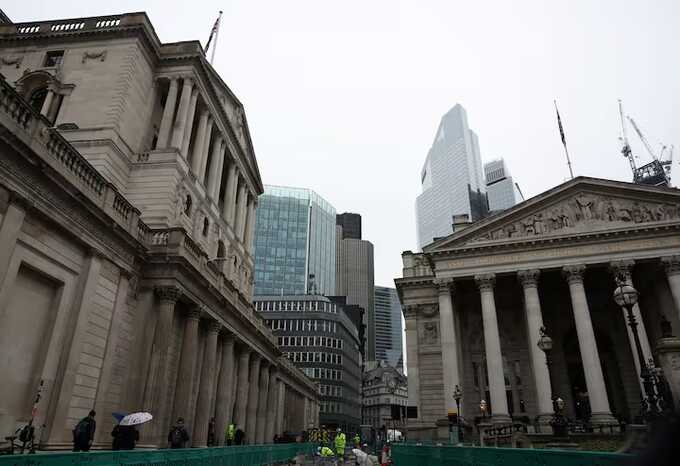The BoE vote follows a long-trailed decision by the European Central Bank earlier this month to start cutting its interest rates and the Swiss National Bank’s second rate cut of 2024 earlier on Thursday.
The Federal Reserve is expected to start lowering U.S. rates in September, according to a Reuters poll, while economists forecast the BoE will begin a month earlier.
"We still expect the MPC to cut rates in August but this is not a done deal," said Alpesh Paleja, interim deputy chief economist at the Confederation of British Industry.
Any cut is likely to be too late for Prime Minister Rishi Sunak, whose Conservative Party is around 20 points behind the opposition Labour Party in the pre-election polls.
While Sunak has sought credit for the fall in inflation since he took office in October 2022, when it was at a 41-year high of 11.1%, Labour blames high mortgage rates on economic mismanagement by the Conservatives’ previous leader, Liz Truss.
The BoE said the upcoming election had no impact on its decision.

RISING INFLATION
The BoE expects inflation to rise above target as the effect of past energy price falls drops out of annual inflation data, and repeated its May forecast for inflation to be around 2.5% in the second half of 2024.
But in a sign the central bank may be getting closer to cutting rates, the BoE policy minutes said the decision to keep rates on hold had been "finely balanced" for some MPC members.
The BoE said indicators of inflation persistence - chiefly wage growth and services inflation - had moderated since its May meeting but remained high.
The MPC members whose views on a rate cut were "finely balanced" placed less weight on higher-than-expected May services inflation than others.
They viewed the higher-than-expected reading as reflecting a nearly 10% rise in Britain’s minimum wage and annual indexed rises in prices that reflected past inflation - factors they did not expect to have as big an upward effect on future inflation.
"The fact that the decision was described as ’finely balanced’ for some of those voting to hold is a signal that an August rate cut is firmly in play," said Peter Arnold, chief economist at accountants EY UK.
But for other MPC members, the high services price inflation and the fact that wage growth had been faster than standard economic models had predicted reinforced their view that it was too soon to cut rates.
Services price inflation has fallen less than the BoE expected at its May meeting - only declining to 5.7% rather than 5.3% - and private-sector wage growth is almost twice the rate the BoE judges as compatible with 2% inflation.
Since the start of the election campaign the BoE has been in a self-imposed period of silence, cancelling public events.
Before that, BoE Chief Economist Huw Pill described an excessive focus on a June rate cut as "ill advised" but both he and Deputy Governor Ben Broadbent - who steps down at the end of this month - said a rate cut over the summer was possible.
The BoE began to raise rates in December 2021, earlier than other major central banks, and they reached their current peak in August 2023.
